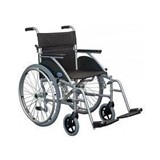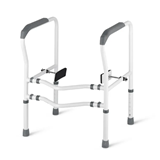Key Takeaways
- Clinicians' time is your most expensive resource. Every minute a GP or nurse spends on purely administrative tasks is a direct hit to your practice's bottom line and capacity for patient care.
- Upskill admin staff for routine tasks. Train your team to manage chronic disease recalls, prepare care plan documents (for GP sign-off), handle simple prescription renewals (under strict protocol), and perform basic triage.
- Leverage your PMS to automate. Use your Practice Management Software's recall, task management, and template functions to streamline workflows and provide admin staff with the tools they need to succeed.
- Clear protocols are non-negotiable. Define the exact scope and steps for every delegated task. This ensures patient safety, meets RACGP standards for supervision, and empowers admin staff to act confidently.
- The ROI is significant. Investing in admin training can free up 10-20% of clinical time, allowing clinicians to see more complex patients, reduce burnout, and increase practice revenue.
- Secure clinician buy-in early. Involve your GPs and nurses in designing the delegation protocols; framing the change as a way to protect their time is key to overcoming resistance.
- Track KPIs to prove the value. Measure the impact of your training investment by tracking efficiency gains (like completed care plans) and using this data to demonstrate the clear ROI to stakeholders.
Introduction: The hidden capacity within your practice
Running a medical practice in Australia in late 2025 is a high-wire act. You're balancing immense pressure to provide timely, high-quality patient care against significant operational challenges. Persistent workforce shortages, particularly for GPs and practice nurses, mean your clinical team is stretched thinner than ever. Data suggests clinician burnout remains a critical issue, impacting both staff wellbeing and patient safety. At the same time, the administrative burden of modern healthcare continues to grow.
Many practice managers feel caught, believing the only solution is to find more clinical staff, a difficult and expensive proposition. But what if your greatest untapped resource is already within your practice? Your administrative team, when properly trained and empowered, can take on a significant portion of the non-clinical workload that currently consumes valuable clinician time. This isn't about asking receptionists to play doctor; it's a strategic approach to delegation that frees your clinicians to focus purely on clinical care. This article provides a practical guide on how to train and equip your admin staff to reduce clinical load, boost efficiency, and build a more sustainable practice.
Where is clinical time being lost? Identifying the admin drain
Before you can delegate, you must identify where your clinicians' expensive time is being spent on tasks that don't require their clinical expertise. Shadow your GPs and nurses for a few hours, or simply ask them, where do they feel their time is wasted on non-clinical administration?
Common time traps often include:
- Managing routine recalls: Manually searching for patients due for preventative checks or chronic disease reviews.
- Repetitive paperwork: Filling out standard sections of care plans, referral forms, or pre-procedure checklists.
- Chasing information: Following up on missing pathology results or hospital discharge summaries.
- Handling simple enquiries: Answering basic patient questions about appointments or routine results that fall within normal limits.
Every minute a GP (whose time might cost the practice $3-$5+ per minute) spends on these tasks is a minute they could have spent with a complex patient. Your trained admin staff (whose time might cost $1-$1.50 per minute) can often handle these tasks more efficiently and cost-effectively.
Defining the scope: Safe and effective task delegation
The key to success is identifying tasks that are administrative in nature and can be performed safely and effectively by non-clinical staff following clear protocols. This is not about clinical decision-making.
Tasks ripe for delegation to trained admin staff include:
- Recall and Reminder Management: Running recall searches in your PMS for preventative health checks (e.g., immunisations, cervical screening, B_P checks) and chronic disease management reviews (e.g., diabetes cycle of care, asthma action plans). Contacting patients to book these appointments.
- Care Plan Preparation: Preparing the administrative sections of GP Management Plans (G_P_M_Ps) and Team Care Arrangements (T_C_As), including populating patient details and history from the file, ready for the GP to complete the clinical components.
- Prescription Renewal Requests (under strict protocol): Following a doctor-approved protocol to manage requests for routine, uncomplicated repeat prescriptions (e.g., checking eligibility, preparing the script for GP review and electronic signing). This must have GP oversight.
- Basic Triage (using approved protocols): Training reception staff to use approved triage algorithms (like those used by healthdirect Australia) to ask structured questions and safely direct patients to the most appropriate level of care (e.g., emergency department, urgent appointment, routine appointment, self-care advice).
- Results Management (non-clinical aspects): Following up on outstanding results from external providers and notifying patients of normal results according to a clear practice protocol (e.g., via SMS or secure message) after the result has been reviewed and marked as "normal - notify patient" by the clinician.
Investing in targeted training: Building competence and confidence
Delegation without adequate training is unsafe and ineffective. Your training program needs to equip your admin team with the specific knowledge and skills required for their expanded roles.
- Core Knowledge:
- Medical Terminology: Basic understanding of common medical terms and abbreviations.
- Privacy and Confidentiality: Deep understanding of the Australian Privacy Principles (APPs) and your practice's specific policies.
- Understanding Chronic Disease: Basics of common conditions like diabetes and asthma to understand the purpose of recall cycles.
- Process Training:
- Using the PMS Effectively: Specific training on recall systems, task management, template usage, and secure messaging functions within your software (e.g., Best Practice, MedicalDirector).
- Triage Protocols: Formal training on using the approved triage system.
- Practice Protocols: Detailed training on your practice's specific, documented protocols for every delegated task (e.g., the exact steps for handling a script renewal request).
- Delivery Methods:
- Internal Training: Use your practice nurses or senior admin staff to train new team members.
- External Courses: Consider short courses in medical terminology or administration.
- Role-Playing: Regularly practise common scenarios (e.g., handling a results query, triaging a call) to build confidence.
Leveraging technology: Your PMS is your greatest enabler
Modern Practice Management Software (PMS) is designed to support exactly this kind of team-based care model. It provides the tools to automate, track, and manage delegated tasks safely.
A realistic scenario: Streamlining chronic disease recalls
A practice needs to recall 300 diabetic patients for their annual cycle of care.
- The old way: The practice nurse spends days manually running reports, checking files, and phoning patients. It's inefficient and many patients are missed.
- The tech-enabled way:
- The Practice Manager uses the PMS's built-in search function to generate a list of all diabetic patients due for review.
- An admin team member, using a pre-approved template, sends an automated SMS recall to all patients on the list via the PMS.
- The PMS automatically tracks responses and creates tasks for the admin team to follow up only with those who haven't booked.
- The Practice Nurse's time is now focused solely on seeing the patients for their clinical review, not on the administrative task of finding them.
Ensure your team is fully trained on how to use these features within your specific software.
Managing compliance, scope, and risk
Delegating tasks does not mean delegating responsibility. As a practice manager, you remain accountable for ensuring patient safety and compliance.
- Clear, Written Protocols: Every delegated task must have a clear, step-by-step written protocol that defines the scope, the process, and the escalation points (i.e., when to involve a clinician). These protocols are essential evidence for RACGP accreditation, which requires practices to demonstrate safe systems for delegation and supervision.
- Documented Training: Keep meticulous records of all training provided to your admin staff, including dates, topics covered, and competency assessments.
- Regular Audits: Periodically audit the delegated tasks. For example, review a sample of care plans prepared by admin staff or listen in (with consent) on triage calls to ensure protocols are being followed correctly.
- Reinforce Scope of Practice: Continuously reinforce to your admin team what is within their scope and, more importantly, what is not. They are providing administrative support under clinical supervision; they are not making clinical decisions.
Getting your clinicians on board
Your biggest challenge in delegating clinical admin might not be training your admin team, but convincing your clinicians to let go of tasks they're used to doing. Overcoming this resistance requires a clear change management strategy focused on demonstrating the benefits to them.
- Frame it as protecting their time. Don't talk about "saving money"; talk about "freeing you up." Explain that the goal is to reduce their administrative burden so they can focus on complex patient care, which is the best use of their expensive time and expertise. Highlight how it can reduce their personal workload and help combat burnout.
- Involve them in protocol design. Clinicians need to trust the process. Create a small working group with a key GP and nurse to develop and approve the written protocols for each delegated task. When they help build the safety rails, they are far more likely to trust the system.
- Start small with a pilot. Choose one willing GP and trial the new workflow for a specific task (e.g., care plan preparation) for one month. Meticulously track the time saved and the successful outcomes. Share this concrete data with the rest of the clinical team to prove the concept works safely and effectively.
Measuring the ROI of your training investment
Investing time in training your admin team needs to deliver a measurable return. By tracking a few simple Key Performance Indicators (KPIs), you can clearly demonstrate the financial and operational benefits of your program to practice owners and stakeholders.
- Define your KPIs. Focus on metrics that show a direct impact:
- Efficiency: Track the percentage increase in completed preventative health tasks (recalls, care plans, health assessments) per month.
- Financial: Measure the increase in practice revenue directly attributable to these completed items (e.g., increased billings from GPMPs/TCAs or PIP payments).
- Clinical Time Saved: Survey your clinicians before and after implementation to quantify the reduction in time they spend on admin tasks.
- Calculate the return. Use this data to build your business case. For example: "By training our admin team to manage recalls, we increased our diabetic cycle of care completion rate by 40% in six months. This generated an additional $15,000 in PIP payments and freed up approximately 5 hours of nursing time per week, delivering a clear return on our training investment."
Conclusion
In the face of Australia's healthcare workforce challenges, leveraging the full potential of your administrative team is no longer just a good idea; it's a strategic imperative. By identifying appropriate tasks, investing in targeted training, using technology effectively, and maintaining robust protocols, you can safely delegate significant non-clinical workload. This frees up your valuable GPs and nurses to focus on complex patient care, reducing burnout, improving practice efficiency, and ultimately delivering better health outcomes for your community.








-160x160-state_article-rel-cat.png)






